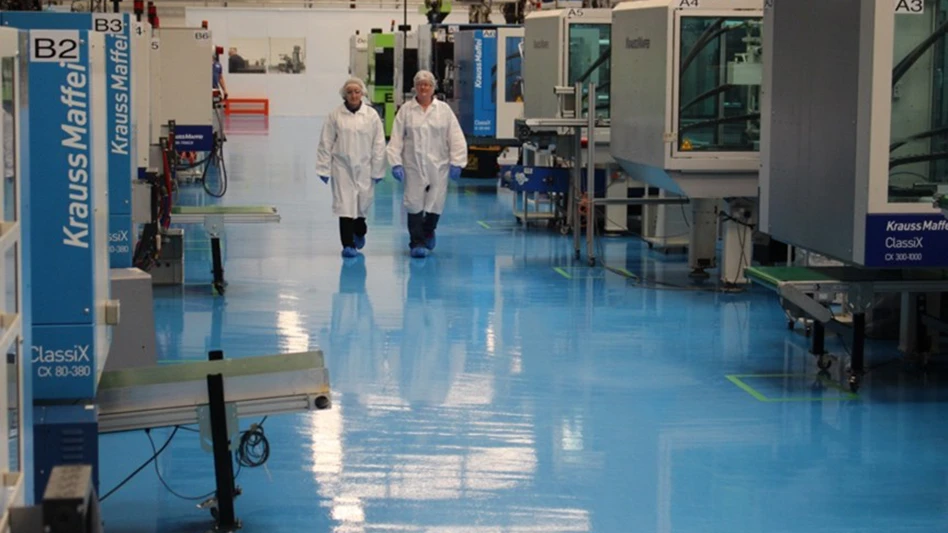
PHOTO: KLAUS VOLLRATH
“The requirements are stringent, and the competition is hard in the manufacturing of precision mechanical surgical instruments,” says Frank Pauschert, regional sales manager of Schwäbische Werkzeugmaschinen GmbH (SW), Waldmössingen, Germany.
Among Pauschert’s customers is a company that’s grown from its modest beginnings in the 1980s to a mid-sized enterprise in the medical sector with about 130 employees. Upward of 1,000 different medical instruments are manufactured there, fulfilling a wide range of surgical applications, all of which come ready for use. The individual parts are made of premium biocompatible materials such as stainless steel and produced in machining centers. Despite the company using modern NC-controlled machine tools, manual operations continue to be the most popular manufacturing processes for these instruments due to the roughly 40 different components that must be refined, surface-treated, and hand-assembled. Additionally, numerous variants are often needed, necessitating small batch sizes, so implementing flexible tooling is a prime requirement. Due to the extraordinary diversity of variants, there’s also no way to work from common stock.
Read the full article now!Latest from Today's Medical Developments
- Boston Scientific to acquire Penumbra, expanding cardiovascular portfolio
- Star Cutter introduces Double Pilot Reamer
- #80 Manufacturing Matters - Machining Strategies to Save Time and Improve your Process for MedTech Components with Kennametal Inc.
- Real-world parts and expert manufacturing advice
- Experts discuss the latest in toolholding technology
- How permanent magnets are powering medical innovation
- Forecasting the year ahead in design and manufacturing
- Tecomet, Orchid Orthopedic Solutions announce merger agreement





